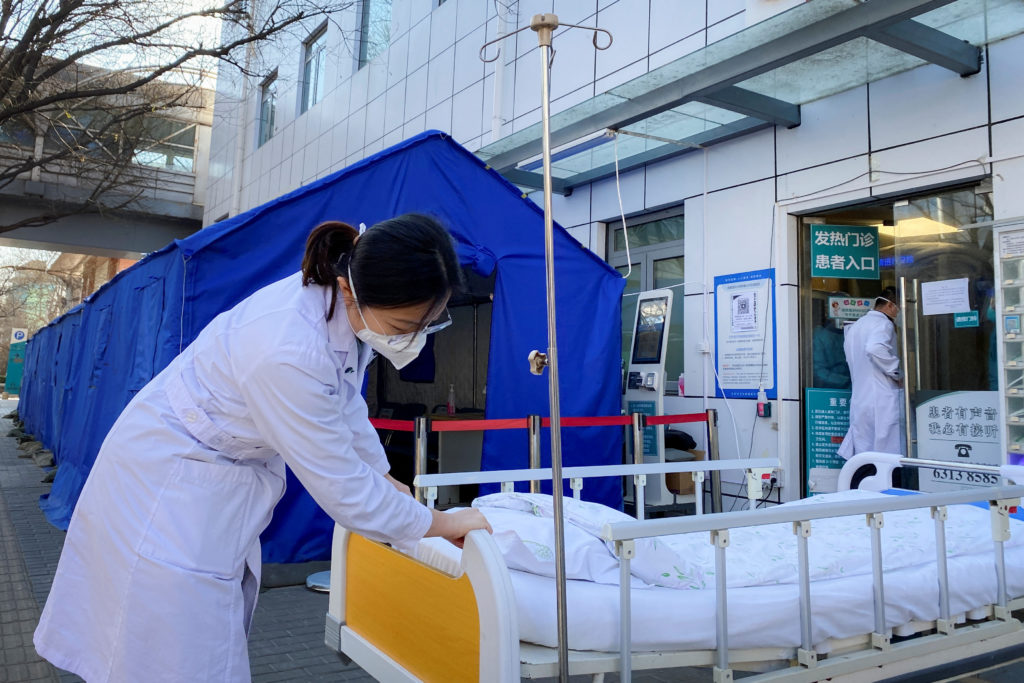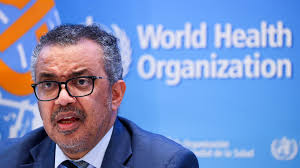HMPV outbreak: India reports 5 cases, govt says no need to panic

NEW DELHI: India on Monday reported at least five cases of Human Metapneumovirus (hMPV), which causes respiratory illness and was recently identified in China and Malaysia. Two cases were detected in Karnataka, two in Tamil Nadu, and one in Gujarat.
All five confirmed cases are in children.
Health authorities have reassured the public, emphasising that the virus is not new and there is no need to panic. While reports suggested a suspected case in Kolkata, West Bengal Chief Minister Mamata Banerjee clarified that no hMPV case has been detected in the state.
This latest health scare coincides with the fifth anniversary of the Covid-19 pandemic.
J P Nadda, the Union health ministry, citing health experts, stressed that hMPV, which was first identified in 2001, has been circulating globally for years, making it unlikely that the outbreak will escalate into a pandemic.
The Karnataka cases involved a two-month-old female infant and an eight-month-old male infant. They were detected during a routine surveillance by the Indian Council of Medical Research (ICMR), the Ministry of Health and Family Welfare confirmed in a statement.
The girl has since been discharged, and the boy is recovering at Bengaluru Baptist Hospital, who according to sources from the Bruhat Bengaluru Mahanagara Palike (BBMP), may be discharged soon.
A third case was detected in Ahmedabad, where a two-month-old boy tested positive for hMPV. Bhavin Solanki, the medical officer in charge at the Ahmedabad Municipal Corporation, stated that the case was detected on December 26, but it was reported to authorities late by the private hospital. These patients and their family members have no history of international travel in recent days, according to government statements.
In Tamil Nadu, two children tested positive for hMPV in Chennai and Guindy, showing common cold-like symptoms, including fever, cold, and cough. Both are recovering under medical observation, and the state health department has taken measures to prevent further spread.
The virus causes respiratory infection leading to symptoms resembling the common cold. It spreads via droplets, direct contact, and possibly airborne particles. The Union health ministry emphasised that the virus is already circulating globally, including in India, and noted that current data from the ICMR and the Integrated Disease Surveillance Programme (IDSP) network showed no unusual surge in influenza-like illness (ILI) or severe acute respiratory illness (SARI) cases in the country.
The central government had already announced last week that it was monitoring the situation closely following a rise in respiratory illnesses in China, stressing that there was no cause for panic as the virus is not new to India. In a meeting convened by the health ministry to assess the situation, a joint monitoring group recommended increasing the number of laboratories testing for hMPV under the ICMR’s network to better monitor trends throughout the year.
In response to the latest reports, health departments in several states, including Karnataka, Delhi, and Maharashtra, have begun closely monitoring the situation and issued advisories to enhance preparedness. The Delhi health department issued an advisory on Monday, requiring hospitals to isolate suspected cases and maintain thorough documentation of SARI cases, with essential treatments such as paracetamol, antihistamines, bronchodilators, and oxygen supplies available.
The Maharashtra health department said it reported no spike in respiratory-related illnesses in the state in 2024 vis à vis previous year. Karnataka's health minister, Dinesh Gundu Rao, said that a review meeting would be held with state officials to assess new information and determine the next steps.
Director General Health Services Atul Goel stated that hMPV is similar to other respiratory viruses, causing flu-like symptoms in very young children or the elderly. Niranjan Patil, head of infection diseases at Metropolis Healthcare, suggested simple measures, such as hydration and saline nebulisation, adding that hand washing and masking are effective in preventing transmission.
Sandeep Budhiraja, group medical director at Max Healthcare and senior director at the Institute of Internal Medicine, noted that there may be no cause for alarm, as cases of hMPV are common during the winter season when flu cases rise.










